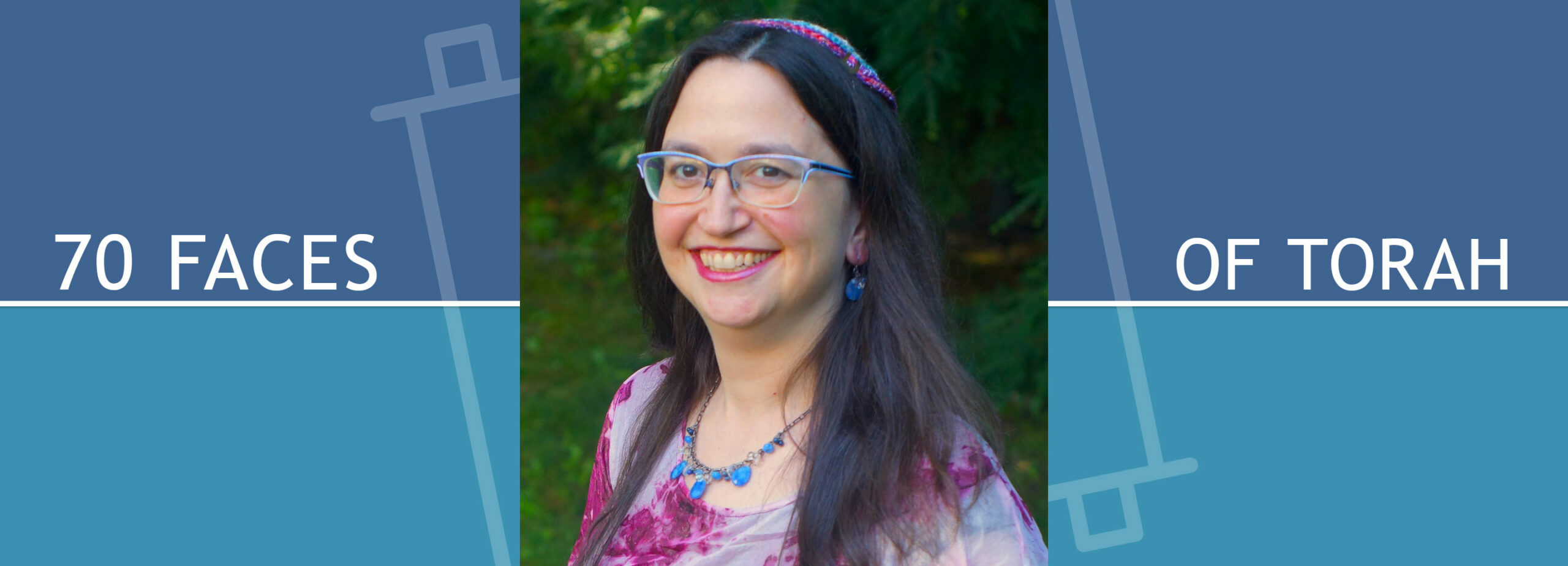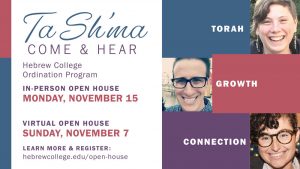Deuteronomy Returning to Our Neighbors—To See or Not to See?

Parshat Ki Teitzei (Deuteronomy 21:10-25:19)
It is the month of Elul. In just a few weeks we’ll reach the High Holy Days, our yearly attempt to start fresh, to get things right. As I write these words though, I am keenly aware, and I imagine you are too, of the baggage that we, as a global society, will be bringing with us into the new year. Each Yom Kippur, we repeat the vidui, the liturgical, alphabetical list of things we as a community have gotten wrong, unloading that baggage so that we may move forward less burdened. In some communities, the practice of selichot, of rising early to get a jump start on the work of repentance, has already begun, including this enumeration of sins on a daily basis.
Years ago, I adapted the vidui into English for children, listing a relatable childhood transgression for each letter of the ABCs. And when I’ve reflected on the “song” with children, they quickly tell me that they have not done all of the things listed. Many, though not all, do admit that they’ve done some of the things. Even small children understand that it is uncomfortable to think about all of the imperfect things we do—even things that we might not have done ourselves, but that we can relate to. I also find it uncomfortable to think of anyone in my community, let alone myself, doing some of the awful transgressions that are listed in the vidui. And yet to face the new year honestly means acknowledging that people do some truly terrible and embarrassing things, and that in some way, communally, we all play a part in them.
Ki Teitzei, this week’s parsha, presents mitzvot for an array of situations that might occur within a society, guiding us through the most just, respectful, or compassionate responses to each one. Some of these situations inspire pride and warm fuzzy feelings—mitzvot like building a parapet on one’s roof, treating farm animals kindly, paying workers in a timely manner, and keeping honest weights and measures in one’s business dealings. Others, like the sins we confess in the vidui, make us uncomfortable—like mitzvot governing the results of capturing a beautiful woman in war, executing a son who has grown wild and out of control, and various acts of impropriety in intimate relationships.
When we read the Torah as a spiritual practice, looking for inspiration and positive feelings, we run up against this inconvenient reality. The Torah is written as a guide, addressing real people who live in the real world, who do real things that in our most noble moments we would like to imagine people would not do. Some of the situations look different in our day, but, at its core, the Torah reminds us that within any society, situations will occur that need to be handled and sorted out in the kindest, fairest way possible, even though no resolution to these situations can live up to our ideal.
Wishing not to discuss the uncomfortable mitzvot of this parsha, I thought about focusing this piece on one of the more feel-good mitzvot, hashavat avedah, the obligation to return lost objects. In this short passage (Deuteronomy 22:1-3), one recurring word caught my eye, the word l’hitalem, to conceal oneself, or to conceal from oneself. In its first occurrence, Chapter 22, verse 1 reads: “Do not watch idly as your brother’s ox or sheep goes astray, and conceal yourself from them. You should certainly return them to your brother.” The idea of concealing oneself caught the attention of the rabbis long ago, perhaps because the verse would seem to work just as well without that phrase. It seems similarly extraneous when it appears again two verses later, clarifying that any lost object must be returned in the same way as a lost ox or sheep, tacking on at the end, “you must not (or perhaps will not be able to) conceal it from yourself.”
When I first started pondering the connection between this self-concealment and the impulse to avoid helping others, I thought of the way in which we distance ourselves from the concerns of people around us today. I’ve been struck by the animosity that has developed between people advocating a return to a life free of the restrictions of the pandemic, and those struggling to hold onto those restrictions and the relative safety they represent. I’ve been amazed at how difficult it has become to understand the perspective of the other, and how easy it has become to vilify and dehumanize them. Rather than seeing the yearning for connection, the suffering from isolation, the concern for health and life, the worry over children and immune-compromised loved ones, we’ve come to see each other as adversaries, fools, tyrants.
Perhaps in placing this imperative not to conceal ourselves, or to conceal the concerns of others from ourselves, in the middle of this parsha full of the problems we wish society would not have, the Torah hints at a deeper truth about all of these situations: it is in our nature to remain focused on ourselves, to avoid seeing and understanding each other, because, if we were to see and understand, there is no way we could rationalize to ourselves not going out of our way to help. We need the reminder to keep our eyes, and our hearts, and souls open, because in our efforts to protect ourselves, we may sometimes choose not to see.
The rabbis, however, read v’hitalamta in verse one differently. The negative, “Do not” appears in the beginning of the verse and doesn’t repeat before the second verb, so while it can be read as a continuation of the negative, “do not conceal yourself,” it can also be read as a switch to the positive, “conceal yourself.” The rabbis understand this as a concession, that in some situations, it is appropriate to conceal yourself, to not see. They present three situations. First, if a cohen, who is prohibited from entering a cemetery, sees an ox lost in a cemetery, he would not be required to go in and get it. Or, if the person was an elder, and chasing after donkeys would not be fitting for them, or if the time a particular person would spend returning the lost item, for which the owner would be obligated to repay them, is worth more than the item itself, they would not have the obligation to see the item and return it.
Over the past year, I’ve felt guilty at times of letting so much of what is broken in the world pass me by, without fully seeing it, without taking responsibility to do something about it. I’ve focused on what is closest to me and concealed from myself much of the suffering that I know is going on beyond my home and family. I also know that if I were to see, truly and deeply, all of the suffering and imperfection that I am aware of on a superficial level, I still could only do so much about it, and I would exhaust and overwhelm my capacity to care and to act. Reading the rabbis’ understanding that sometimes you can’t not see, and sometimes you must not see, I hope that I choose wisely and appropriately. And I understand that choosing to see it all most likely leads to failure to act on anything.
I started thinking about seeing and not seeing in relation to the swelling Delta wave of Covid-19, and the push and pull between both politicians and individuals. As it comes time to share my thoughts with you, we’ve watched a new (and old) tragedy beginning to unfold in Afghanistan, and the questions of when to see, how much, and when it is our responsibility to act are rising to the surface again, in a different way.
As we return this year to our communal vidui, recounting in alphabetical order the ways we have failed to reach our ideal, and aiming to start afresh, may we be unable to conceal from ourselves the realities and the complications of our world, of our society. May we take that moment to, at least superficially, see it all. May we be especially unable to conceal from ourselves that both we, ourselves, and the people we instinctively blame are one. May this be the year that we return to each other these things that we have lost: our respect, our shared humanity, our choice to see and be seen.
Rabbi Shira Shazeer spent this summer traveling and blogging on Shlepn Nakhes, the Great American Pandemic Road Trip with her husband and three children. She studied in the Scholars Circle at Drisha Institute for Jewish Education, received rabbinic ordination from the Rabbinical School of Hebrew College in 2010, and looks forward to completing an additional masters in Jewish Education, with a focus on special education, in the coming year. After many years serving as school rabbi of a small Jewish day school, Rabbi Shazeer is looking forward to new professional adventures teaching in the learning center at Gann Academy starting this fall.
Want to learn more about our rabbinical program?


